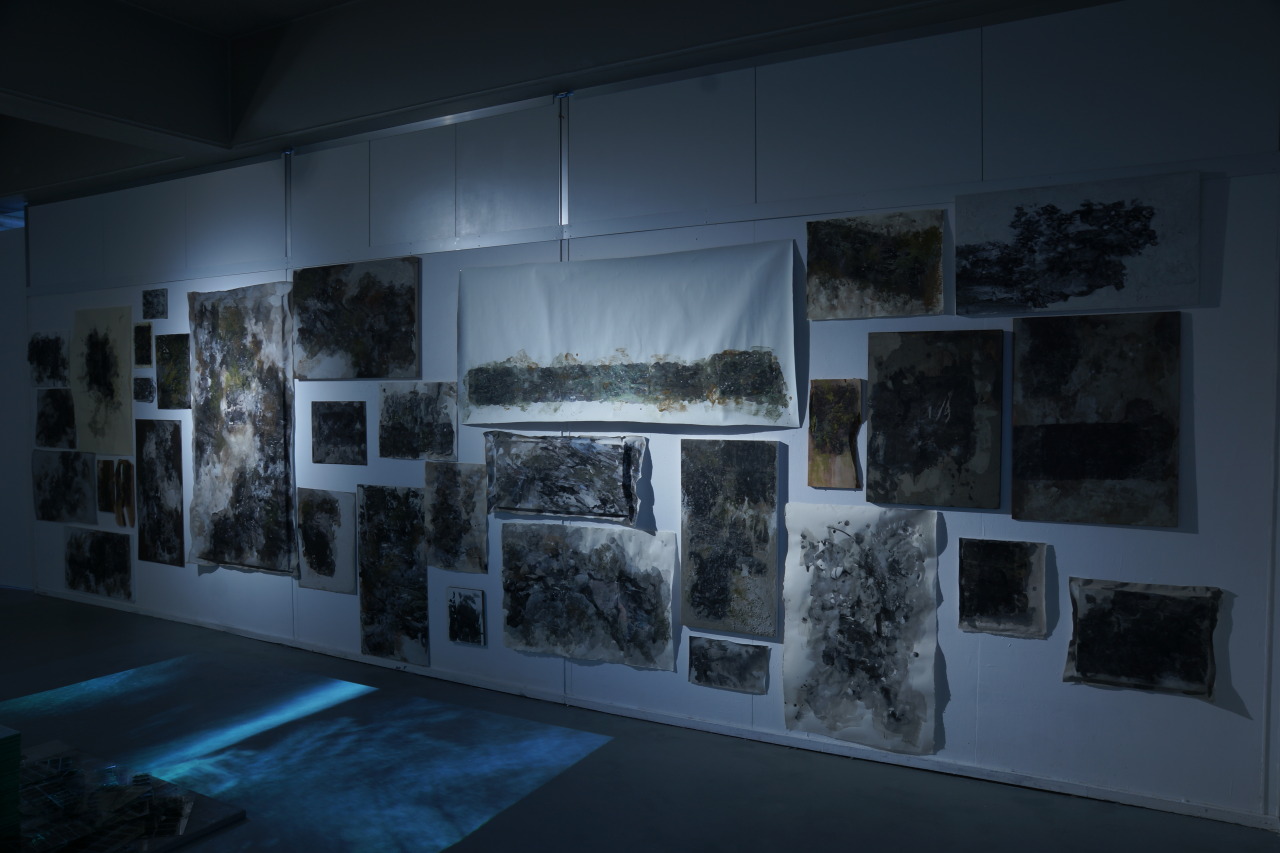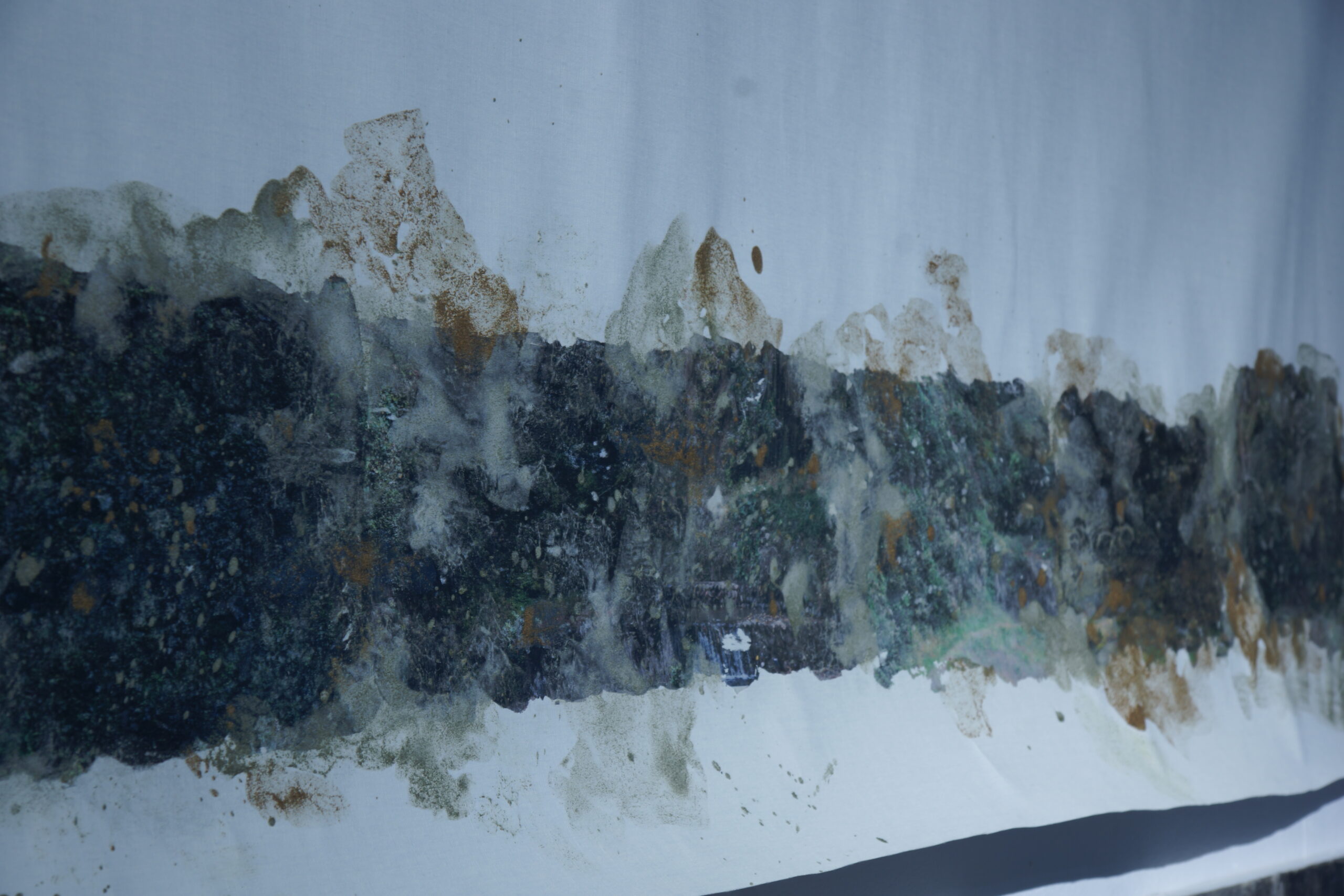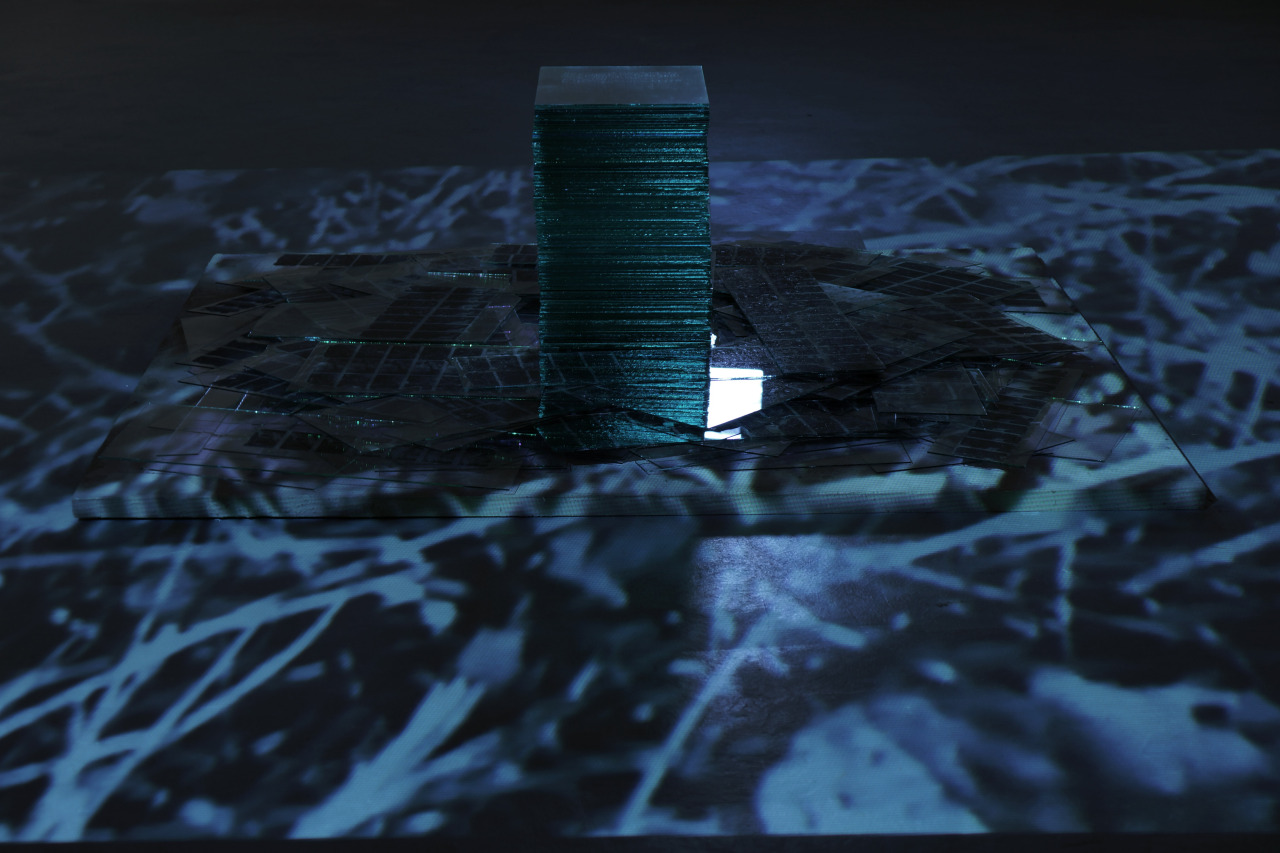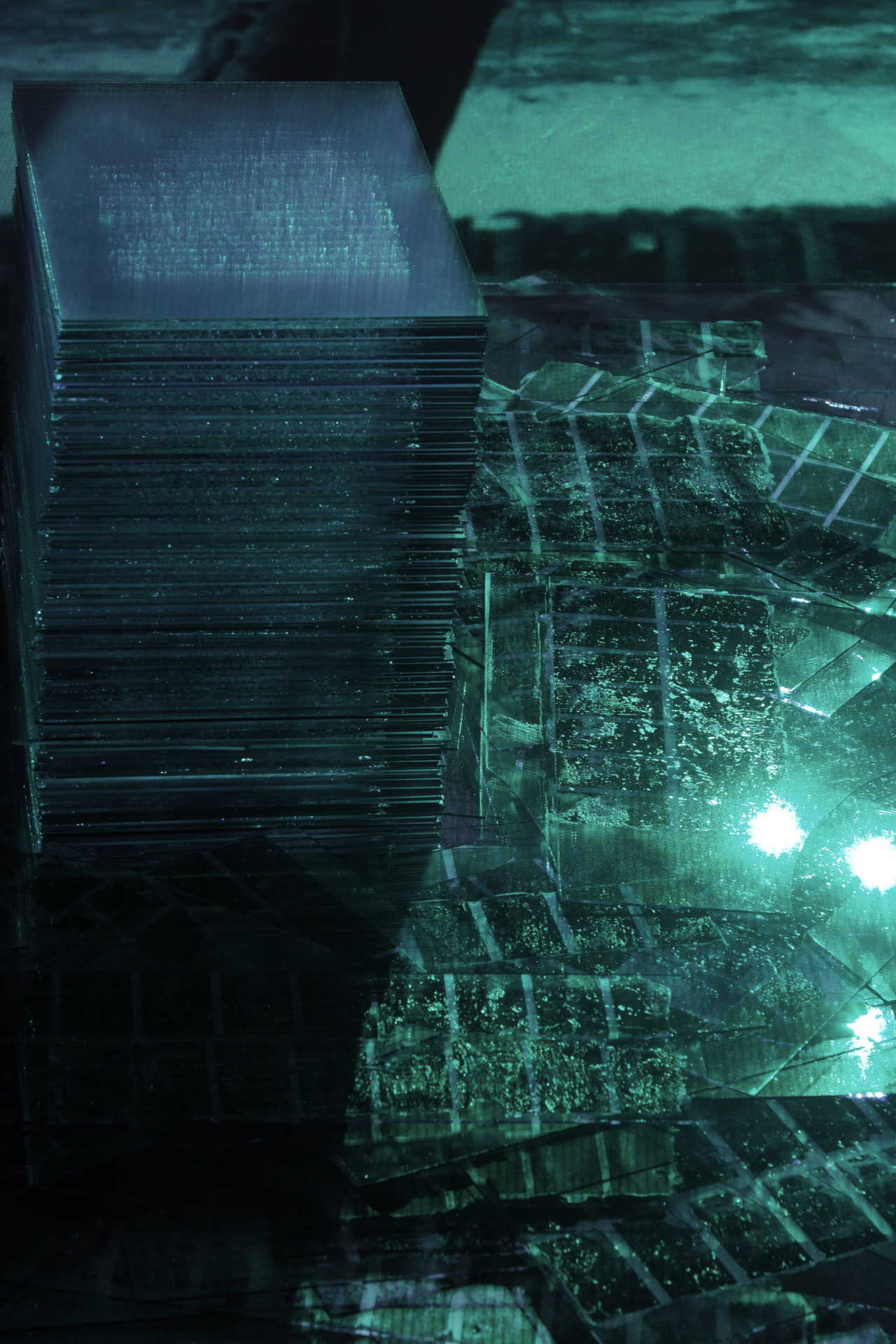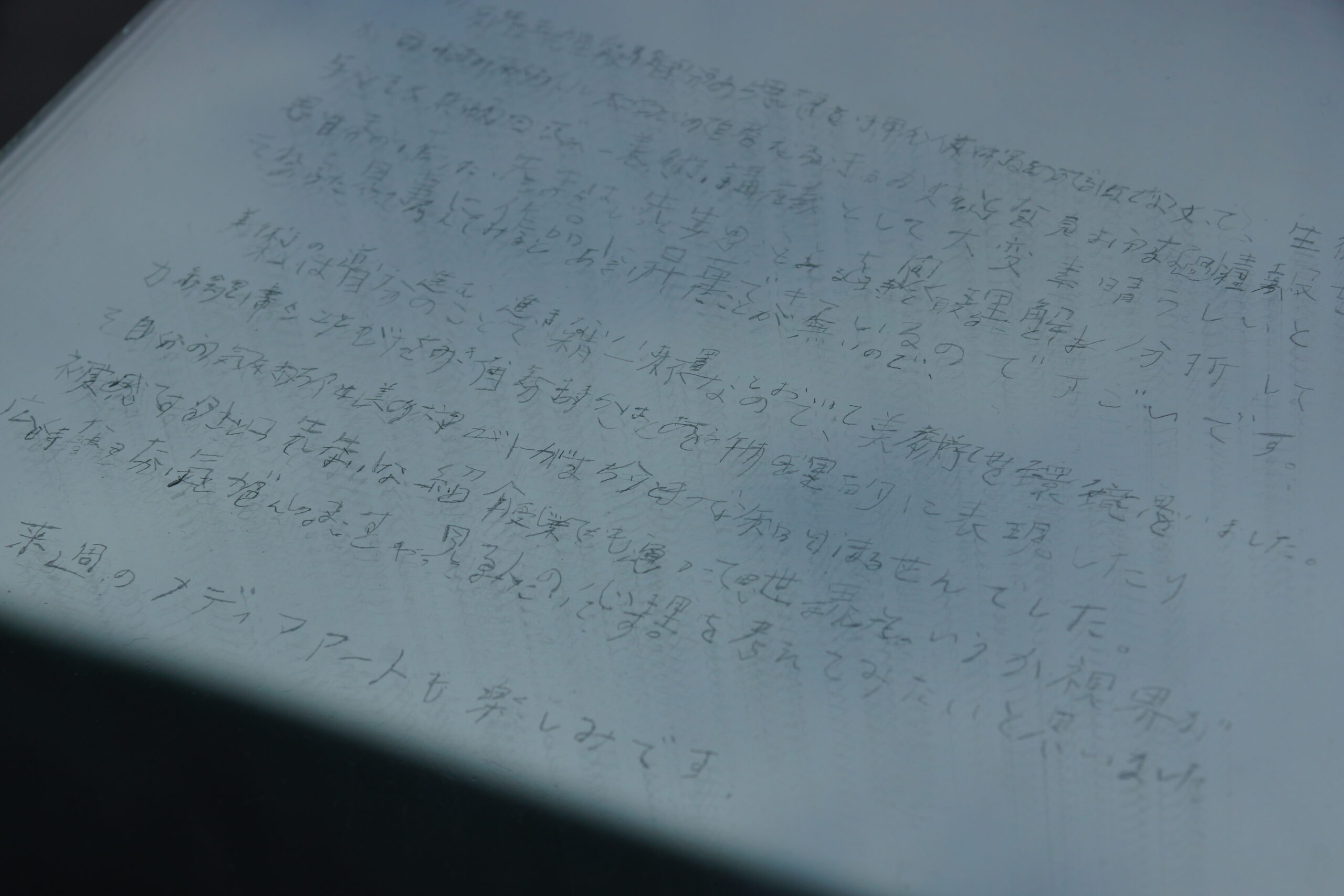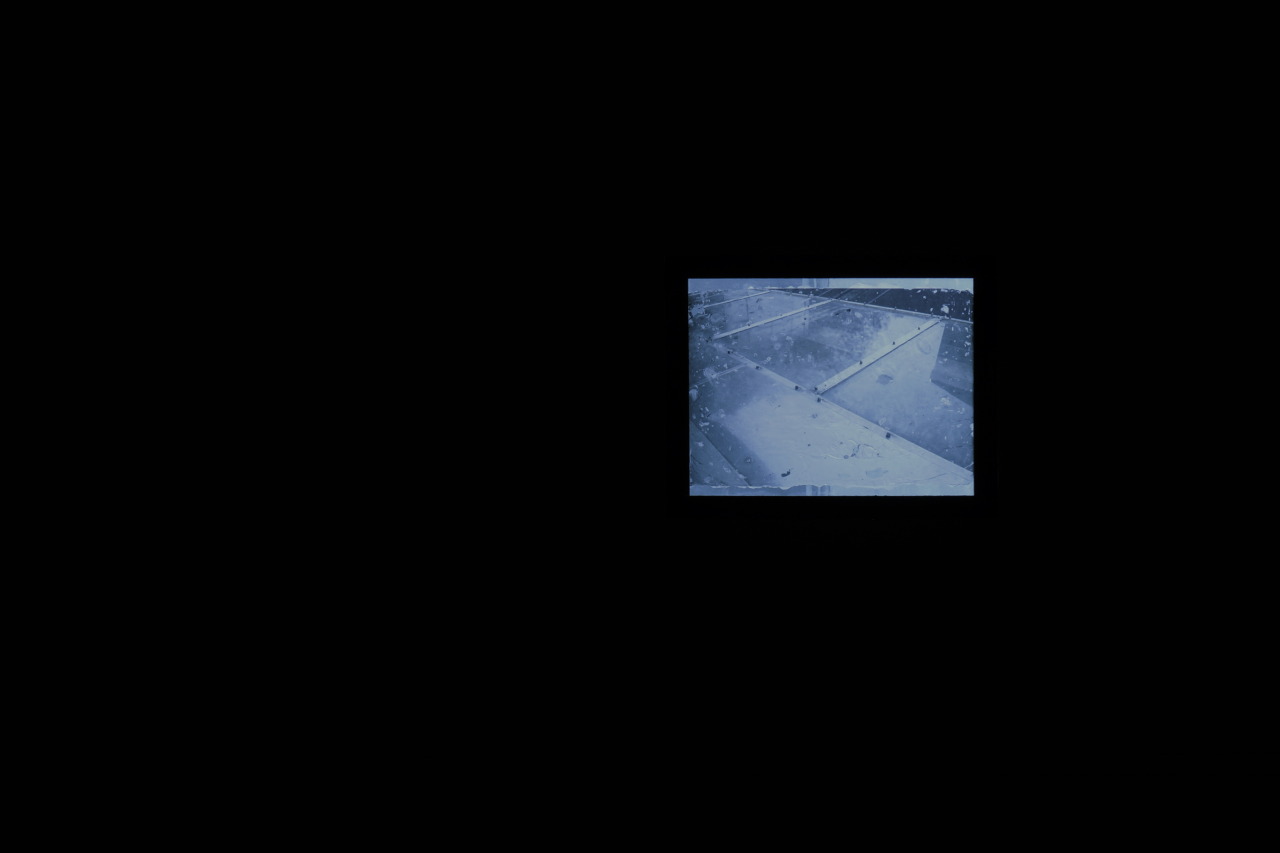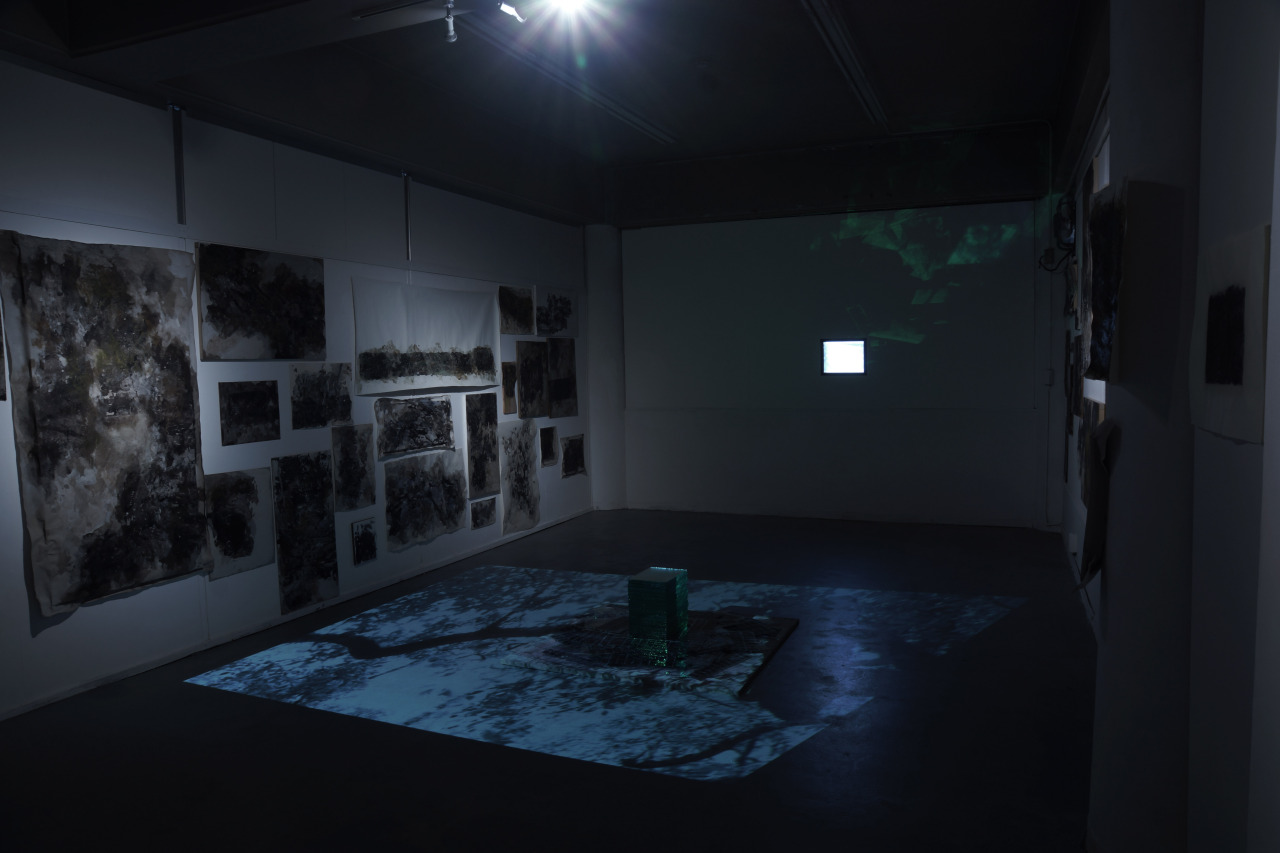

Acquisition of something, sometime, some place far from here 此処ではないどこか、違う時間に、それではないなにかをもらう
- Date
-
2015
- Venue
-
多摩美術大学
- Media
-
engraved on glass, video, canvas, transferred photography on wooden panel, sand, cement, transferred photography on glass
ガラスに文字を彫刻、映像、キャンバス、木製パネルに写真を転写、砂、セメント、ガラスに写真を転写
According to French Sociologist, Marcel Mauss, gifts aren’t free. In his famous essay, The Gift, he explores the obligations on us to give gifts and more importantly to reciprocate what has been given, either in equal or greater value of what was received. He argued that the practice of gift exchange and the obligation to reciprocate gifts is extremely important in order to maintain social harmony.
I thought of Mauss’s theory when I visited Ozakai cave in Toyama Prefecture, a region in Japan. This ancient cave dwelling, which was carved by the sea, has a Shinto shrine built in front of it. I imagined the people who lived in this difficult environment and whose very survival depended on what nature gave them, felt an obligation to pray to the gods to reciprocate for the gifts they received. This interdependence between nature and humans and a need to maintain a kind of harmony is similar to his theory.
In my work, ‘Acquisition of something, sometime, some place far from here’, I show the interdependence of the gift exchange with recordings of my life experiences that were materialized into physical matter. Even though my experiences themselves are not physical matter, I feel the action of materializing them onto glass and other materials creates a reciprocating action and interdependence between the two worlds. A kind of give and take, the information needs the physical world to be expressed and the physical world needs the information to create from. You cannot have one without other – much like the code of the gift.
「贈与」とはマルセル・モースによって提唱された贈り物に対して返礼する義務についての理論である。
ポトラッチやクラなど、贈り物に対して返礼をしないと災いが生じるという民俗に見られる慣習から、贈られた者は別の時間に、別の場所で、別の何かを返礼することが義務とされる。交換原理のような、貨幣などによる即時性 を持つ等価交換とは全く異なるものである。
富山県の大境洞窟住居跡を訪れた際、洞窟の手前には小さな神社が建立されていた。
大境洞窟は海の波によって自然に形成された洞窟で、かつてそこで人が暮してきた場所だが、現在は経年より崩れる可能性を考慮して補強した状態で公開されている。自然という危険を孕む場へ人間が立ち入るためには、 祈りという行為を通して自然からの「贈与」に対する返礼をしなければいけないのかもしれない。 そう考えると、社はそのためのデバイスとして建立されたのではないかと考えられる。つまり人間と自然が 互いを行き来すること、共生することは「贈与」というコードが可能としているのではないだろうか。
人間と自然が共生するとき、人間の身体は自然という環境によって身体の在り方や行為が決定され、同様に、 自然も人間が介入することでしか生じない振る舞いをする。このように、身体と物質の往復運動による相互作用 のプロセスそのものに創造性は孕んでおり、そしてその往復運動を可能とするのが大境洞窟の社がそうであった ように、「贈与」というコードであると考える。
